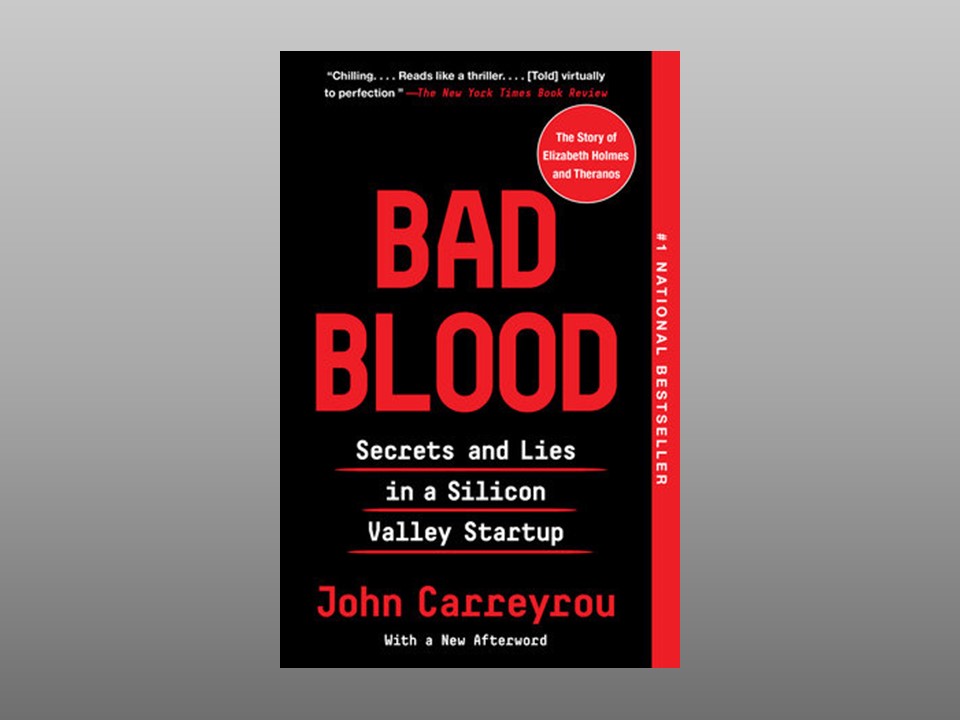We’re all doomed, was my internal head-shaking reaction, when I read this very unsettling book. Ben Goldacre is a British physician with a wicked sense of humour. In Bad Pharma he takes aim at the unholy and uneasy alliance of pharma companies, regulatory bodies, journal editors and even physicians who…
Category: Reviews
Cold Rush: the astonishing true story of the new quest for the polar North by Martin Breum
In which history repeats itself! In 2007, Russia sent submarines to plant the Russian flag on the ocean floor underneath the North Pole. The statements initially released for external consumption pooh-poohed the notion that Russia has making a territorial claim, but internally the messaging was very different. Fast forward to…

Bad Blood by John Carreyrou
What annoyed me is that Theranos has been singled out as a bad apple, an exceptional case. It is not. The “fake it ’til you make it” ethos is a poisonous Silicon Valley mantra, and I’ve heard repeated with glee all over Southern Ontario. Tech founders boast of their guts…
Innovation in Real Places by Dan Breznitz
I enjoyed the breakdown of innovation into primary, secondary and tertiary pieces.
Legalizing Theft: A Short Guide to Tax Havens by Alain Denault
They simply take all of the illegal bits and offshore them!
The Four: The Hidden DNA of Amazon, Apple, Facebook, and Google by Scott Galloway
This is the story of how print media was left behind.
Brick by Brick: How LEGO Rewrote the Rules of Innovation and Conquered the Global Toy Industry by David C. Robertson
Fascinating U-turn in the middle…
An Ugly Truth: Inside Facebook’s Battle for Domination by Cecilia Kang and Sheera Frenkel
What Zuckerberg really wants is to develop nerdy products, not moderate free speech for the world!
The Millionaire and the Bard by Andrea Mays
The net result of this book was to instill in me a desire to visit the Folger Library in Washington DC. Henry Folger was Rockefeller’s right-hand man at Standard Oil; Rockefeller as the richest man in the world and one of the richest humans who has ever lived. Folger had…
Moore’s Law: The Life of Gordon Moore by Arnold Thackray
Moore is famous for the law that bears his name: namely, that the number of transistors that can be squeezed onto a microchip doubles every 2 years. The “law” originated from Moore’s insatiable love of data, his tendency to take copious notes, his reflective, analytical thinking and his affinity for…
